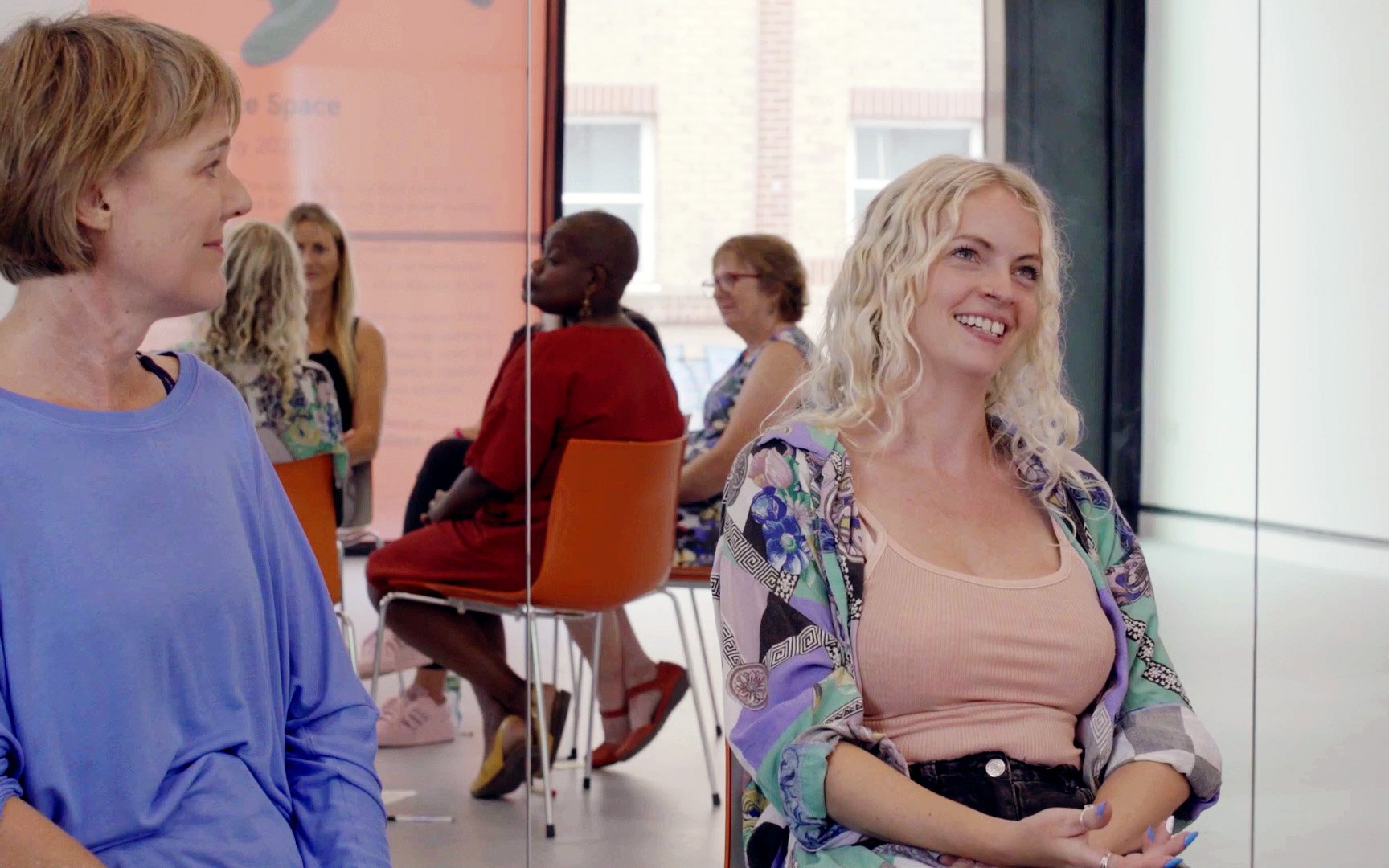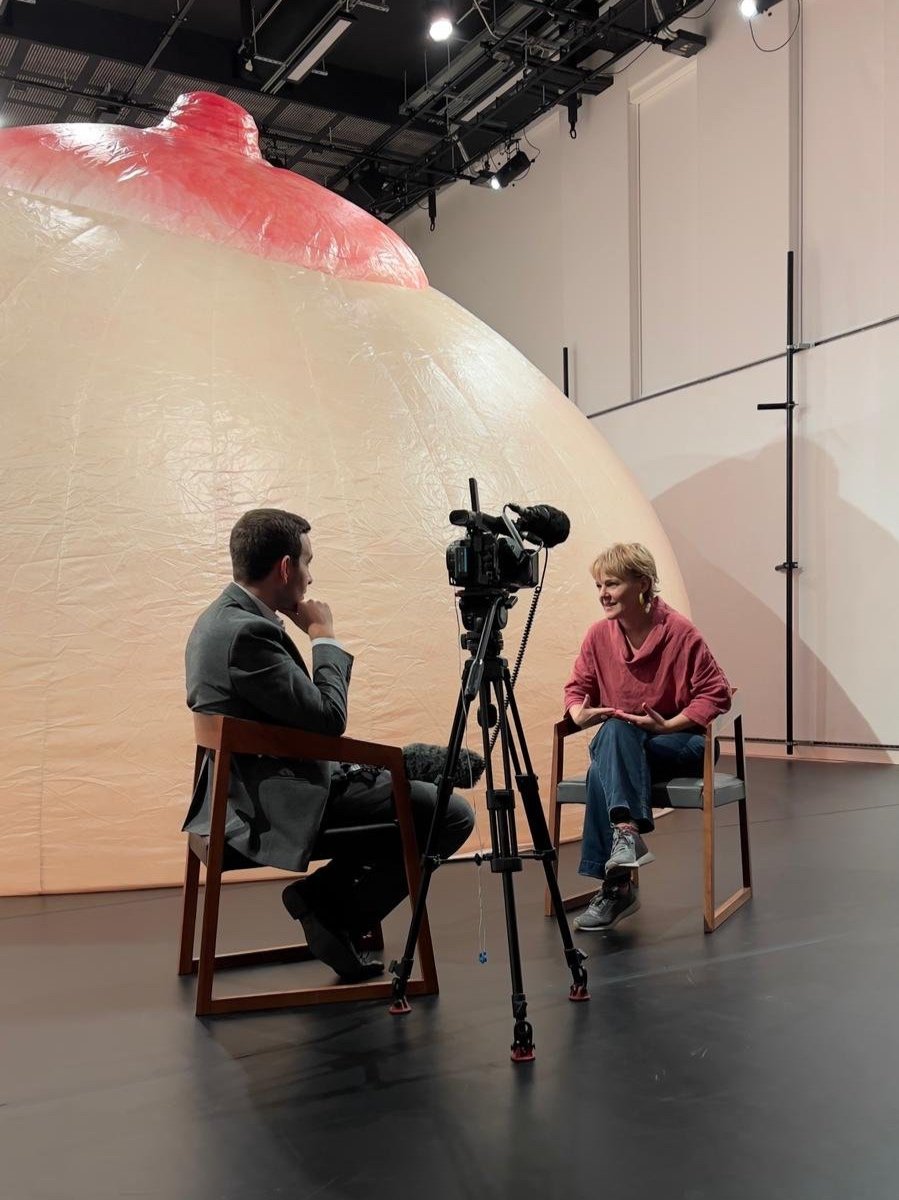1 in 7 women will get breast cancer in their lifetime.
Breast Cancer survival has doubled in the last 40 years in the UK.
A project that brings people of all ages and backgrounds into the discussion, providing alternative ways to listen and hear from those effected by the issues.
The UK government’s 10 year Women’s Health Strategy launched in August 2022 is prioritising better breast education for women and girls, early screening options for faulty gene carriers and personalised pathways for care and recovery. The strategy focuses on improving health outcomes for women throughout their lifetime, recognising the role of ‘Women’s Voices’ in the development and implementation of healthcare policies and services.
Goodbye Breasts! is a creative intervention into this space.
How we hope to make a difference
-

Empower women and girls to talk about breast health.
We create spaces outside of clinical frameworks in which conversations can be had.
-

Raise awareness of early detection of breast cancer through breast checking and screening.
The Big Breast provides a welcoming way for visitors to learn more about breasts.
-

Increase knowledge of faulty genes in people who carry them, the general public and medical professionals.
Our films explore the effects of faulty genes on individuals and their families.
-

Highlight the role arts can play in health and well-being.
How experiences with our bodies and health – real and imagined – can contribute to knowledge and change in health care.
Terminology guide
We know that talking about breast cancer involves a lot of different terms, which can be confusing. Let us simplify it for you with clear definitions and explanations to make understanding easier.
-
Breast cancer is treated primarily through surgery, followed by adjunctive therapies such as chemotherapy, radiotherapy and other targeted drugs.
-
An operation to treat or prevent breast cancer which involves the surgical removal of one or both breasts.
Around 25,000 are performed each year in the UK.
-
Surgery which involves creating new breasts through using implants or muscle from the thighs or stomach.
Depending on the woman’s circumstances, the nipples may be spared or removed.
-
PALB2, BRCA1, BRCA2
These are high risk genes associated with developing breast cancer. A person’s level of risk is related to their history of familial breast cancer.
-
Also called a risk reducing mastectomy.
This surgery is performed when a woman is at a high risk of developing cancer due to a faulty gene.
-
Is an X-ray of the breast used to detect signs of breast cancer. It can pick up cancers that are too small to see or feel.
-
Check out some of our favourite resources for:
“The emotional impact of a breast cancer diagnosis in patients is not always fully recognised or addressed in the course of current therapeutic interactions with clinical practitioners… this project could help to provide space for that support especially for those patients who find the arts to be a natural channel of dealing with the trauma of diagnosis and treatment.”
Professor Malcolm Reed
Brighton and Sussex Medical School, NHS Consultant“I never thought I would see a boob that big that you could go in. It’s fantastic, it’s funny but it also has a serious side to it. I think there are a lot of people who don’t know what a boob looks like inside, and what I noticed was how beautiful it was. It reminds me of what I have lost, but in a good way.”
Exhibition visitor and breast cancer survivor
“We have learnt so much and the young women have really engaged with the subject. The project has also initiated important conversations with our young dancers which we wouldn’t have had otherwise.”
Ellie Bishop Williams
Choreographer, Project FemaleWe have received a range of media coverage.
Here are some of the highlights
BBC Sussex
Joanna was interviewed by Sarah Gorrell on her morning show on the 24th October. Listen here.
Radio Reverb
The exhibition was visited by Melita Dennett from Radio Reverb and featured on Tuesday Live on 24th October. Listen here.
Breast Cancer Now
A blog post about Joanna’s story. Read it here.
ITV Meridian News
Watch the interview with Joanna below.

